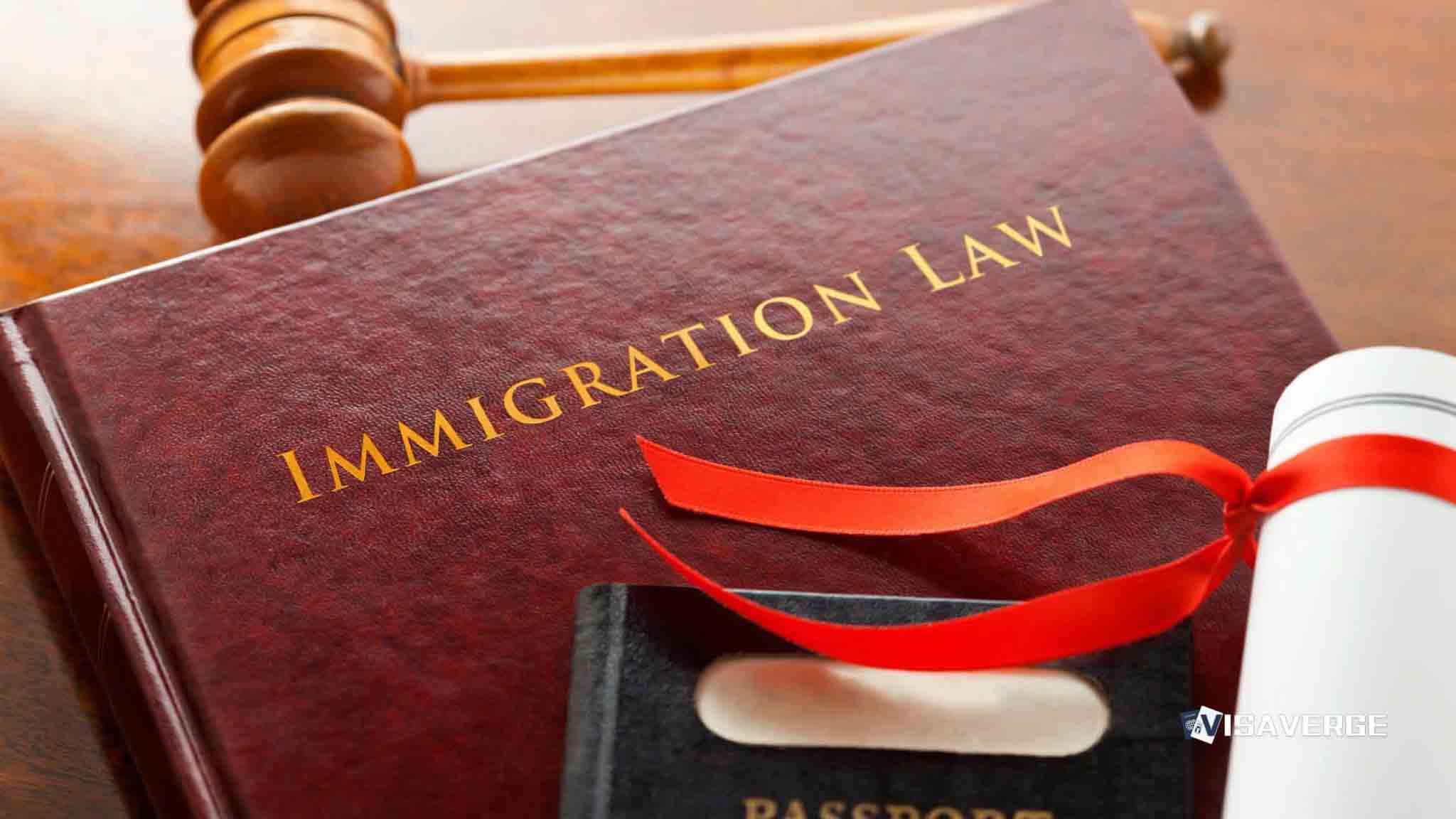Understanding Immigration Fraud in Australia
Immigration fraud is a significant issue that affects not only individuals but the integrity of a country’s immigration system as a whole. In Australia, authorities take such violations seriously, working diligently to maintain the fairness and security of their immigration processes. Immigration fraud can manifest in various forms, including false documentation, visa scams, or deceptive practices by unscrupulous agents.
How to Identify Immigration Malpractice
Before delving into how to report immigration malpractice, it’s important to recognize what constitutes fraud. Common indicators include:
- Unverified agents promising guaranteed visas or jobs
- Requests for money transfers to individual accounts for visa processing
- Offers to fake documents or provide false information to authorities
Reporting Immigration Fraud in Australia
When you’re faced with potential immigration fraud or malpractice, it’s essential to act promptly and report the incident to the relevant Australian authorities. Doing so helps protect both your interests and those of other current or prospective migrants.

Step-by-Step Guide for Reporting
Step 1: Gather Evidence
Compile any relevant information and documents related to the fraudulent activity. This may include correspondence, receipts, or contracts.
Step 2: Contact the Authorities
Reach out to the Australian Border Force or the Department of Home Affairs. They are the main bodies responsible for investigating immigration-related offences.
Step 3: Submit a Report
Provide a detailed account of the suspicious activity through the official channels. Reports can be made anonymously if necessary, should you fear retaliation.
Channels for Reporting Immigration Malpractice in Australia
To report suspected immigration fraud, you can use one of the following options:
- Online: Complete an online form on the Australian Border Force or the Department of Home Affairs websites.
- Phone: Contact the Border Watch by phone. Details on the official contact number are available on the Australian Border Force’s website.
- Mail: For those who prefer traditional methods or wish to include physical evidence, reports can be mailed to the Department of Home Affairs.
Remember, by reporting immigration malpractice in Australia, you contribute to the integrity of the nation’s immigration system and help in preventing the exploitation of individuals seeking a new life in Australia.
The Impact of Reporting Immigration Fraud
Every report counts. Authorities use the information provided by the public to identify patterns, conduct investigations, and potentially prevent further illegal activities. Your vigilance and actions have a real impact on the robustness of the immigration system and the safeguarding of its policies.
Protecting Yourself Against Immigration Fraud
While reporting immigration fraud is crucial, so is protecting yourself from becoming a victim. Here are a few steps to take:
- Always verify the credentials of immigration consultants or agents.
- Be cautious of any offers that seem too good to be true.
- Never provide personal information or payments to unverified individuals claiming to represent immigration authorities.
Conclusion
Understanding and reporting immigration fraud in Australia is a shared responsibility. Whether you’re aiming to protect yourself or help maintain the integrity of the immigration process, it’s important to be informed and proactive. If you suspect immigration malpractice, take action immediately—for guidance, visit the official Department of Home Affairs website. Your contribution is crucial in fighting against immigration fraud and fostering a fair and efficient immigration system for all.
Expert Insights
Did You Know?
- Australia has a long history of immigration dating back over 40,000 years. The indigenous Aboriginal and Torres Strait Islander peoples were the first inhabitants of the continent, making them the original immigrants.
- The largest wave of immigration to Australia occurred during the gold rush in the 1850s. Thousands of people from around the world, including China, Europe, and the Americas, flocked to Australia in search of wealth and opportunity.
-
The White Australia Policy, implemented in the early 20th century, aimed to restrict non-European immigration to Australia. It wasn’t until the 1970s that this policy was officially dismantled, leading to a more diverse and multicultural Australia.
-
In recent years, Australia has consistently ranked among the top countries in terms of immigration per capita. Despite having a relatively small population, Australia has welcomed a large number of immigrants, with over 30% of its population being born overseas.
-
Australia has a points-based immigration system, where individuals are assessed based on factors such as age, education, work experience, language proficiency, and nominated occupations. This system aims to attract skilled migrants who can contribute to the country’s economic growth.
-
Immigration has had a significant positive impact on Australia’s economy. Studies have shown that immigrants contribute to innovation, productivity, and job creation, helping to drive economic growth and development.
-
Australia is known for its humanitarian immigration program. It has been consistently ranked as one of the top countries in the world for resettling refugees, providing them with safety, protection, and opportunities for a new life.
-
The Australian government offers various support services and programs to help immigrants settle and integrate into Australian society. These include English language classes, employment assistance, housing support, and cultural orientation programs.
-
Australia is home to a rich cultural tapestry, with over 200 languages spoken and a diverse range of religious and cultural practices. This diversity is celebrated through festivals, events, and the recognition of multiculturalism as a core value of Australian society.
-
Immigrants have made significant contributions to various fields in Australia, including arts, science, sports, politics, and business. Prominent individuals such as media mogul Rupert Murdoch, actor Hugh Jackman, and Nobel laureate Elizabeth Blackburn are examples of immigrants who have excelled in their respective fields.
By exploring these lesser-known facts about immigration in Australia, we gain a broader understanding of the country’s rich history, diverse culture, and the positive impact immigrants have had on its development and prosperity.
Learn today
Glossary/Definitions
- Immigration fraud: The act of deceiving immigration authorities, often through false documentation, visa scams, or deceptive practices by unscrupulous agents, with the intent of obtaining immigration benefits unlawfully.
- Malpractice: Any improper, illegal, or unethical conduct in the field of immigration, including fraud, misrepresentation, or deceptive practices.
-
Unverified agents: Individuals who claim to be immigration consultants or agents but do not possess the necessary credentials or authorization to provide immigration services.
-
Visa scams: Schemes or fraudulent practices that prey on individuals seeking visas, often promising guaranteed visas or jobs in exchange for money or personal information.
-
Deceptive practices: Manipulative or misleading actions undertaken by individuals or entities in the immigration process, which may include providing false information or documents to immigration authorities.
-
Australian Border Force: The government agency responsible for enforcing immigration and customs laws, as well as ensuring the integrity of Australia’s border, including investigating immigration-related offenses.
-
Department of Home Affairs: The Australian government department responsible for immigration and border protection policy and administration, including processing visas and citizenship applications.
-
Anonymous reporting: The ability to report immigration fraud without revealing one’s identity, giving individuals the option to protect themselves from potential retaliation during the reporting process.
-
Channels for reporting: Different methods available for individuals to report immigration malpractice or fraud to the relevant authorities.
-
Border Watch: A phone-based reporting service operated by the Australian Border Force that provides individuals with a dedicated contact number to report immigration-related offenses.
-
Evidence: Any relevant information, documents, or material that supports an allegation of immigration fraud or malpractice, which can include correspondence, receipts, contracts, or any other form of documentation.
-
Robustness of the immigration system: The strength, effectiveness, and ability of the immigration system to prevent and detect fraudulent activities, maintain fairness, and enforce immigration laws.
-
Vigilance: The state of being watchful, alert, and attentive to potential instances of immigration fraud or malpractice in order to detect and report them.
-
Exploitation: The act of taking advantage of individuals seeking a new life in Australia by misleading or defrauding them in the immigration process.
-
Immigration consultants or agents: Professionals who provide advice and assistance to individuals seeking immigration services, often including visa applications, but must be registered or authorized in accordance with the regulations of the respective country’s immigration system.
Reporting immigration fraud in Australia is essential for safeguarding the integrity of the immigration system and protecting prospective migrants. By gathering evidence, contacting the relevant authorities, and submitting a detailed report, you can make a real impact. Remember to also protect yourself by verifying credentials and being cautious of too-good-to-be-true offers. For more guidance and information, visit visaverge.com. Stay informed and proactive in the fight against immigration fraud!
FAQ’s to know:
FAQ 1: What are the indicators of immigration malpractice in Australia?
Indicators of immigration malpractice in Australia include unverified agents promising guaranteed visas or jobs, requests for money transfers to individual accounts for visa processing, and offers to fake documents or provide false information to authorities.
FAQ 2: How can I report immigration fraud in Australia?
To report immigration fraud in Australia, follow these steps:
- Gather evidence: Collect any relevant information and documents related to the fraudulent activity.
- Contact the authorities: Reach out to the Australian Border Force or the Department of Home Affairs, responsible for investigating immigration-related offenses.
- Submit a report: Provide a detailed account of the suspicious activity through official channels. Reports can be made anonymously if necessary.
FAQ 3: What channels can I use to report immigration malpractice in Australia?
To report suspected immigration fraud in Australia, you have the following options:
- Online: Complete an online form on the Australian Border Force or the Department of Home Affairs websites.
- Phone: Contact the Border Watch using the official contact number provided by the Australian Border Force.
- Mail: Mail your report, along with any physical evidence, to the Department of Home Affairs.
Remember, reporting immigration malpractice contributes to the integrity of the immigration system and helps prevent the exploitation of individuals seeking a new life in Australia.
What did you learn? Answer below to know:
- True or False: Immigration fraud in Australia can involve false documentation, visa scams, or deceptive practices by unscrupulous agents.
- What are some common indicators of immigration malpractice? (Short answer)
- How can individuals report potential immigration fraud in Australia? (Multiple choice)
a) By contacting the Australian Border Force or the Department of Home Affairs
b) Sending an email to a designated immigration fraud reporting address
c) Reporting anonymously through a third-party organization
d) None of the above













